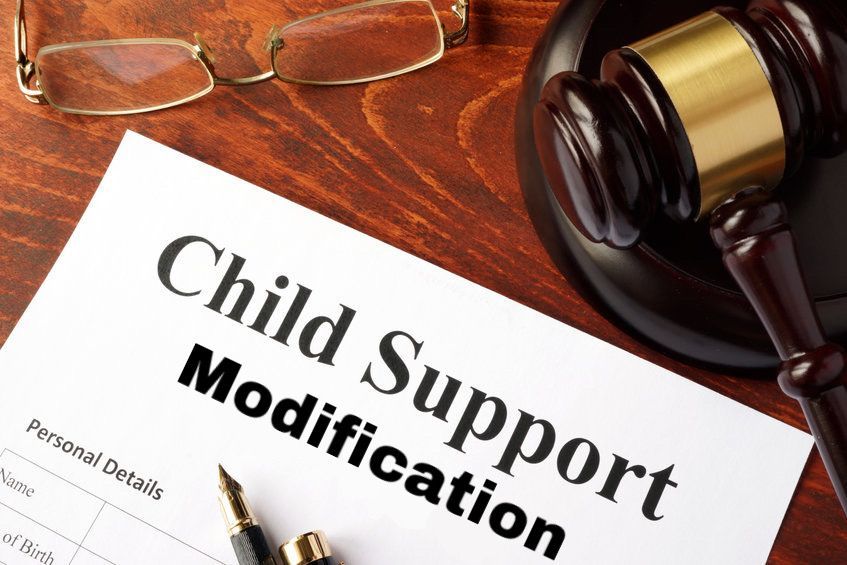What is the Most Common Penalty for a First Time DUI?
The most common penalty is for a first-time DUI, it’s typically a combination of fines, license suspension, and mandatory DUI education programs. Most states issue a license suspension of 3 to 12 months, fines ranging from a few hundred to several thousand dollars, and required alcohol education or treatment courses. Jail time is possible but usually minimal for first offenses unless aggravating factors are involved (such as high BAC or an accident).
Understanding What a First Time DUI Means
A DUI happens when you drive a car after drinking alcohol or using drugs. In most states, the legal limit is 0.08% blood alcohol content (BAC). This means if your BAC is 0.08% or higher, you can be arrested for DUI.
Some states call it DWI (driving while intoxicated) or OUI (operating under the influence). These all mean the same thing. You were driving when you should not have been.
For most people, a first DUI is a misdemeanor. This is a less serious crime than a felony. But it is still a crime that will go on your record.
When a First DUI Becomes More Serious
Your first DUI can become more serious if certain things happen. These are called aggravating factors. They can lead to bigger fines, more jail time, and stricter penalties.
Some aggravating factors include:
- Your BAC was very high (usually 0.15% or higher)
- You had a child under 18 in the car
- You caused an accident that hurt someone
- You were driving very fast or recklessly
- You refused to take a breath or blood test
If any of these apply to you, your penalties will likely be worse than a standard first DUI.
The Five Most Common Penalties for First Time DUI
When you are convicted of your first DUI, you will face several penalties. Courts rarely give just one punishment. Instead, they combine different penalties to punish you and help prevent you from doing it again.
Fines and Court Costs
Money penalties are one of the most common parts of a DUI sentence. For a first offense, fines usually range from $500 to $2,000. But this is just the base fine.
You will also pay court costs, fees for programs, and other charges. When you add everything up, your total costs can be $5,000 to $10,000 or more. Some states charge higher fines if your BAC was 0.15% or above. In these cases, fines can reach $5,000.
The court may let you pay these fines over time. Talk to your lawyer about setting up a payment plan if you cannot pay everything at once.
Driver's License Suspension
Losing your license is very common for a first time DUI. In most states, your license will be suspended for 90 days to one year. This suspension starts when the court orders it, not when you were arrested.
Some states have two separate suspensions. The DMV can suspend your license right after your arrest. This is called an administrative suspension. Then the court can add another suspension if you are convicted. Sometimes these suspensions overlap, so you don't serve both full times.
Many states offer a restricted or hardship license. This special license lets you drive to work, school, or medical appointments during your suspension. You may need to install an ignition interlock device to get a restricted license.
Probation Instead of Jail Time
Most first time DUI offenders get probation instead of going to jail. Probation usually lasts six months to two years. During probation, you must follow strict rules.
Common probation rules include:
- Meeting with a probation officer regularly (monthly or more)
- Not drinking any alcohol at all
- Avoiding bars and places that serve alcohol
- Taking random drug and alcohol tests
- Completing all required classes and programs
- Not getting arrested for anything else
- Paying all fines and fees on time
If you break any of these rules, your probation can be revoked. This means you could go to jail for the original DUI sentence.
Alcohol Education and Treatment Programs
Almost every state requires DUI offenders to complete alcohol education classes. These are sometimes called DUI school or drunk driving programs.
For first time offenders, these programs usually last 12 to 30 hours. You might attend classes once a week for several weeks. The classes teach you about the dangers of drunk driving and how alcohol affects your body and mind.
Some people must also complete treatment programs. These are longer and more intense than education classes. Treatment programs can last three months to nine months or more. They include group counseling, individual meetings, and sometimes testing for alcohol problems.
You must pay for these programs yourself. Costs range from $200 to $1,000 or more depending on the program length.
Community Service Hours
Many courts require first time DUI offenders to complete community service. This means working for free at a nonprofit organization or government agency.
Community service requirements range from 24 hours to 100 hours or more. Common community service jobs include:
- Picking up trash along highways
- Working at food banks
- Helping at animal shelters
- Assisting at community centers
- Supporting victims of drunk driving
You must complete your community service during your probation period. If you don't finish on time, you could face additional penalties or even jail time.
Will You Go to Jail for a First Time DUI?
This is the question most people ask first. The good news is that most first time DUI offenders do not go to jail, especially if their BAC was low and no one was hurt.
When Jail Time Is Possible
Some states have mandatory minimum jail sentences even for first offenders. These are usually short, like one or two days. Other states only require jail time if your BAC was very high or there were aggravating factors.
If you do face jail time for a first DUI, it is usually 30 to 90 days. But many judges will let you serve this time on weekends so you can keep your job. Some areas also have work release programs where you can leave jail during the day to go to work.
Alternatives to Jail
Many courts offer alternatives to jail for first time offenders. These include:
- House arrest with an electronic monitoring bracelet
- Drug and alcohol treatment programs
- DUI court programs with intensive supervision
- Extended probation with strict reporting
Talk to your lawyer about these options. An experienced criminal defense attorney can help you negotiate for alternatives instead of jail time.
The Ignition Interlock Device Requirement
An ignition interlock device (IID) is like a breathalyzer for your car. You must blow into it before your car will start. If it detects alcohol, your car won't start.
Many states now require IIDs for first time DUI offenders, especially if your BAC was 0.15% or higher. Some states require them for all DUI convictions, even first offenses.
How Long You Need an IID
For first time DUI with high BAC, you may need an IID for six months to one year. Some states require it for shorter periods like three months.
You must pay to have the device installed (usually $75 to $150) and monthly rental fees ($60 to $100 per month). You also pay for monthly maintenance and calibration.
The IID will record every time you use it. If you fail a test or try to tamper with it, this information goes to the court. You could face additional penalties.
How a DUI Affects Your Car Insurance
Your car insurance rates will increase significantly after a DUI conviction. Insurance companies see you as a high-risk driver.
On average, insurance rates go up 50% to 100% after a first DUI. Some people see their rates double or even triple. This increase lasts for three to five years in most states.
You may also need to file an SR-22 form. This is a certificate that proves you have the required insurance. Filing an SR-22 costs $15 to $50, and you must keep it on file for three to five years.
Some insurance companies will cancel your policy after a DUI. If this happens, you'll need to find a high-risk insurance provider. These companies charge much higher rates.
The Hidden Costs of a First Time DUI
Beyond the court penalties, a DUI affects your life in many ways. These hidden costs can add up quickly.
Employment and Background Checks
A DUI is a criminal offense that shows up on background checks. Many employers run background checks before hiring. A DUI on your record can make it harder to get certain jobs, especially:
- Jobs that require driving (truck driver, delivery driver, sales)
- Positions with government agencies
- Jobs in healthcare, education, or childcare
- Careers that require professional licenses
Some employers may overlook a first DUI if you can show you've completed treatment and stayed out of trouble since then. Be honest about your DUI on job applications. Lying can get you fired later.
Professional Licenses
If you have a professional license (lawyer, doctor, nurse, teacher, real estate agent), a DUI conviction could affect it. Some licensing boards suspend or revoke licenses after a DUI conviction. Others may just issue a warning or require additional training.
Contact your licensing board immediately if you're arrested for DUI. They can explain how it might affect your specific license.
Personal Relationships and Stress
A DUI takes a toll on your mental health and relationships. You may feel embarrassed, anxious, or depressed. Family members might lose trust in you. Friends may distance themselves.
The stress of court dates, meetings with lawyers and probation officers, and financial strain can be overwhelming. Don't be afraid to ask for help from a counselor or support group.
Factors That Affect Your First Time DUI Penalty
Not every first DUI case results in the same penalties. Several factors influence what happens to you.
Your Blood Alcohol Content Level
Your BAC at the time of arrest makes a big difference. A BAC of 0.08% to 0.10% usually results in standard penalties. But a BAC of 0.15% or higher often leads to enhanced penalties like higher fines, longer license suspension, and mandatory IID installation.
Some states have a "super DUI" category for very high BAC levels (0.20% or higher). These cases face penalties similar to a second DUI even though it's your first offense.
Whether Anyone Was Hurt
If your DUI caused an accident where someone was injured, your penalties will be much more severe. You could face felony charges instead of a misdemeanor. Felony DUI can result in years in prison, especially if someone died.
Even if injuries were minor, you'll likely face higher fines and longer sentences. You may also have to pay restitution to the victim for their medical bills and other costs.
Your Attitude and Cooperation
How you acted during your arrest and after matters. If you were rude to police, refused tests, or tried to hide evidence, judges may be less lenient. If you immediately took responsibility, enrolled in treatment on your own, and showed genuine remorse, judges may offer lighter penalties.
Working with an experienced driving under the influence attorney can help present your case in the best light. Lawyers know how to highlight positive factors and minimize negative ones.
Your State's Laws
DUI laws vary significantly from state to state. Some states are very tough on DUI with mandatory jail time and long license suspensions. Others focus more on treatment and education for first offenders.
Make sure you understand your state's specific laws. Your lawyer can explain what penalties you're likely to face based on where you were arrested.
How to Minimize Your First Time DUI Penalties
While you can't avoid all penalties, you can take steps to reduce them.
Hire an Experienced DUI Lawyer Immediately
The most important thing you can do is hire a qualified DUI defense attorney right away. Don't wait. A good lawyer can:
- Challenge the evidence against you
- Negotiate with prosecutors for reduced charges
- Help you qualify for diversion programs
- Present mitigating factors to the judge
- Protect your rights throughout the process
Many DUI cases are reduced to lesser charges like reckless driving. These carry lighter penalties and don't count as DUI on your record. An attorney gives you the best chance of this outcome.
Complete Treatment Before Your Court Date
Don't wait for the court to order you into treatment. Enroll in an alcohol education program or counseling on your own. When you go to court, you can show the judge you've already taken steps to address the problem.
This demonstrates responsibility and remorse. Judges often give lighter sentences to people who show they're serious about change.
Gather Character References
Letters from employers, teachers, friends, and family can help your case. These letters should explain that your DUI was out of character and that you're a good person who made one mistake.
Character references work best when they're specific. They should include examples of your good behavior and contributions to your community.
Consider a Diversion Program
Many states offer first offender diversion programs. These programs let you avoid a conviction if you complete certain requirements like treatment, community service, and probation.
If you successfully complete diversion, the charges may be dismissed. This means no DUI conviction on your record. Ask your lawyer if you qualify for diversion in your state.
Understanding DUI Probation Violations
If you're sentenced to probation, follow all the rules carefully. Violating probation can result in serious consequences.
Common probation violations include:
- Missing meetings with your probation officer
- Testing positive for alcohol or drugs
- Not completing required classes or treatment
- Getting arrested for another crime
- Not paying fines and fees on time
- Failing to complete community service hours
If you violate probation, the court can revoke it and impose the original jail sentence. Even for a first DUI, this could mean 30 days to six months in jail.
If you're struggling to meet probation requirements, talk to your probation officer right away. They may be able to help you get back on track without reporting you to the court.
What Happens to Your Criminal Record
A first time DUI conviction stays on your criminal record. In most states, it remains there permanently unless you take steps to remove it.
Expungement Options
Some states allow you to expunge (erase) a DUI from your record after a certain time period. Requirements vary but usually include:
- Completing all parts of your sentence
- Waiting a set number of years (often 3 to 10 years)
- Not getting any other criminal convictions
- Paying all fines and fees
If your DUI is expunged, you can legally say you've never been convicted in most situations. However, law enforcement and some licensing boards may still be able to see the expunged record.
Check with a lawyer about criminal record expungement and sealing options in your state. This can make a big difference in your future employment and housing opportunities.
Sealing Your Record
Some states allow record sealing instead of expungement. A sealed record still exists but is hidden from most background checks. Only certain government agencies can access sealed records.
Sealing may be easier to qualify for than expungement. Ask your attorney which option is better for your situation.
Special Considerations for Young Drivers
If you're under 21, the rules are even stricter. Most states have zero tolerance laws for underage drinking and driving. This means any detectable amount of alcohol (even 0.02% BAC) can result in a DUI charge.
Penalties for underage DUI often include:
- Longer license suspension (sometimes until age 21)
- Mandatory alcohol education programs
- Community service
- Fines
- Possible juvenile detention
- Impact on college applications and financial aid
Parents should contact a juvenile criminal offenses attorney if their child is arrested for DUI. Juvenile records can sometimes be sealed after the child turns 18, but this isn't automatic.
How Long Does a First DUI Affect You?
The direct penalties for a first DUI (probation, fines, classes) usually last one to two years. But the effects continue much longer.
Your criminal record is permanent unless expunged. Your insurance rates stay high for three to five years. Some employers and licensing boards can access your DUI record indefinitely.
That said, the impact does lessen over time. If you stay out of trouble after your first DUI, it becomes less and less important to most employers and other decision-makers. After 10 years, many people find the DUI barely affects their life anymore.
The key is learning from the mistake and never repeating it. A second DUI carries much harsher penalties and closes more doors in your life.
Comparing First, Second, and Third DUI Penalties
Each DUI conviction after your first one brings significantly worse consequences.
Offense
Fines
Jail Time
License Suspension
Probation
First DUI
$500-$2,000
Usually probation; up to 6 months if severe
90 days - 1 year
6 months - 2 years
Second DUI
$1,000-$5,000
Mandatory minimum 5-30 days; up to 1 year
1-2 years
1-3 years
Third DUI
$2,000-$10,000
Mandatory minimum 30-90 days; up to 5 years
2-10 years
2-5 years
A third DUI is often charged as a felony in many states. This carries prison time of several years, not just jail time.
Regional Differences: Rhode Island DUI Laws
Since you're reading this on a Rhode Island law firm's website, here's specific information about Rhode Island DUI penalties.
In Rhode Island, a first offense DUI includes:
- Fines ranging from $100 to $500
- License suspension for 30 to 180 days
- Possible jail time up to one year (though usually suspended for first offense)
- 10 to 60 hours of community service
- Alcohol and drug treatment assessment
- Highway safety assessment
Rhode Island also has an administrative license suspension that happens automatically when you're arrested if your BAC is 0.08% or higher. This suspension is separate from any court-ordered suspension.
If you're facing DUI charges in Rhode Island, contact an experienced local attorney who understands Rhode Island courts and procedures.
Protecting Your Rights After a DUI Arrest
Being arrested for DUI doesn't automatically mean you'll be convicted. You have rights, and there are defenses available.
Common DUI Defenses
Your lawyer may be able to challenge:
- The reason the police stopped you (was there probable cause?)
- The accuracy of the breath or blood test
- Whether the officer followed proper procedures
- The calibration and maintenance records of testing equipment
- Whether your rights were read to you properly
Sometimes police make mistakes that can lead to your charges being reduced or dismissed. An experienced attorney knows what to look for.
Your Constitutional Rights
You have the right to remain silent and the right to an attorney. Use these rights. Don't answer questions beyond providing your license and registration. Politely tell the officer you want to speak with a lawyer before answering questions.
Anything you say can be used against you in court. People often try to talk their way out of a DUI arrest, but this usually makes things worse.
The Importance of Not Driving After Drinking
The best way to avoid DUI penalties is simple: don't drink and drive. Even one drink can impair your judgment and reaction time. It's not worth the risk.
Safe alternatives include:
- Designating a sober driver before you go out
- Using rideshare apps like Uber or Lyft
- Taking a taxi or public transportation
- Staying overnight where you are
- Calling a friend or family member for a ride
These options cost much less than a DUI. A rideshare home might cost $20 to $50. A DUI can cost $10,000 or more when you add up all the expenses.
Final Thoughts
A first time DUI is serious, but it's not the end of the world. Most people face fines, license suspension, probation, and required classes rather than jail time. The total cost can be $5,000 to $10,000 or more when you include fines, fees, insurance increases, and other expenses.
The consequences extend beyond the courtroom. A DUI affects your employment, insurance, and personal life. It stays on your criminal record permanently unless expunged. Your insurance rates stay high for years.
But with the right legal help, you can minimize the damage and move forward. An experienced DUI attorney can challenge the evidence, negotiate reduced charges, and help you qualify for programs that keep your record cleaner.
If you've been arrested for DUI, don't face it alone. Contact Inman & Tourgee today at (401) 823-9200. Our experienced criminal defense attorneys have helped many Rhode Island residents navigate DUI charges. We'll review your case, explain your options, and fight for the best possible outcome. The sooner you call, the more we can do to protect your rights and your future.











